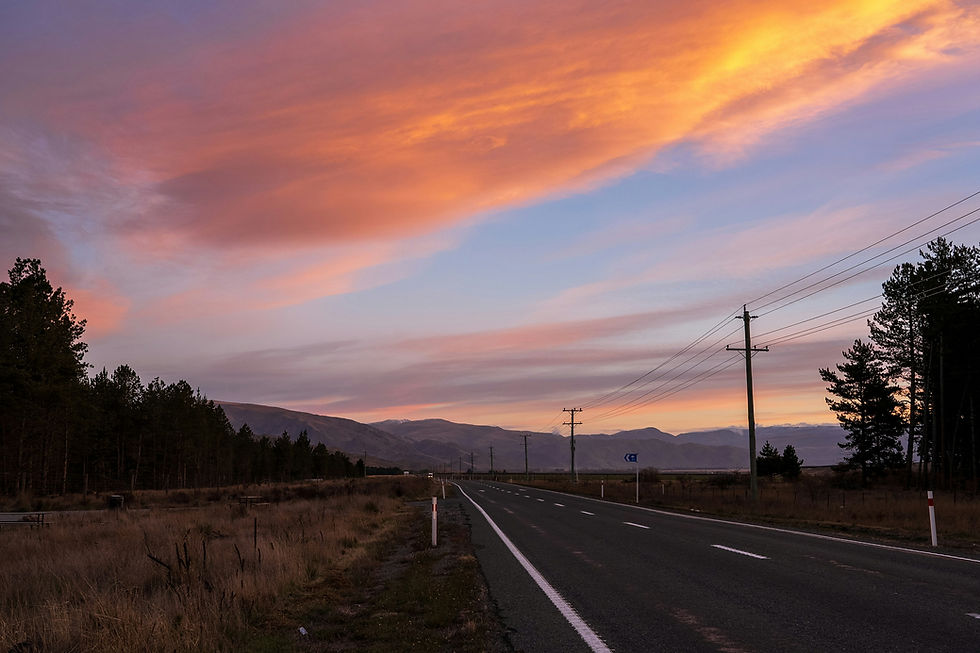The Work of Staying in New Zealand
- Our Words Matter
- Nov 24, 2025
- 4 min read
Opinion article by Stacey Shortall
I have been fortunate in my life to spend time far from home. Some of that was through study and work, in Canada and New York, and much of it through travel over many years. I have spent time in the United States, across Central and South America, through the UK and much of Europe, including the East and Scandinavia, as well as in India, China and parts of Africa and the Pacific. At the time, I didn’t always fully understand what I was witnessing. I was simply curious. But I continued to follow how those places developed over time, watching patterns emerge slowly, sometimes over decades.
The smaller countries, the ones closest in scale to us, stayed with me the most. They held a kind of quiet confidence in themselves. They believed their young people had reasons to stay. They treated practical skill as something to be proud of. And they saw being small not as a limitation, but as an invitation to focus deeply on what mattered most.
New Zealand has always had that same sort of confidence. We don’t tend to proclaim it. We show it, in how we step in for one another, how we work hard without spectacle, how communities rally when times are difficult. It is a strength that lives in actions, not slogans.
And yet recently, many people seem tired. Not discouraged, just stretched. Families working hard and still feeling pressure. Businesses wanting to grow but hesitating a little. Young adults wondering where their futures will unfold. And throughout our regions, a subtle sense that something once secure feels less certain.
I have heard these conversations in boardrooms and on marae, beside sports fields, at farm tables and kitchen benches. They are not angry. They are thoughtful. They are full of care. And they often circle gently around one question. How do we help more of our people feel that they can stay, not just physically, but with pride and possibility?
Governments, of every political persuasion, work hard to answer that question. Policy makers carry real responsibility. They are constantly balancing pressures, trying to do what is best for the long term while managing the needs of the present. I have seen that effort up close. It is genuine.
And yet, as we hear more talk of friends or children heading offshore, I have found myself returning to some of the things I once noticed overseas, and then watched unfold slowly over the years.
In Switzerland and Austria, for example, vocational training is not considered a backup plan. It is a respected route to mastery. Young people are paid while they train, rotating through workplaces, gaining confidence through real contribution. Smaller employers don’t train alone. They form regional alliances that share apprentices, support pastoral care and anchor skill in place. The result is not only employment but identity. And importantly, long-term research there shows that many employers ultimately benefit financially from supporting that training. Capability strengthens everyone.
We could adapt that here. The ingredients exist already, capable young people, committed employers, strong regional pride, deep practical knowledge. The shift is simply to connect what we already have so that no one carries the load alone. Apprentices could be placed into meaningful work within a year. And perhaps even earlier, the soft but critical sense of “there is a place for me here” could begin to return.
A related lesson unfolded for me in Finland. They chose to organise their innovation efforts around only a few national priorities, not dozens. They focussed where their strengths already lay. For us, those strengths are clear too, agritech that lifts both productivity and care for the land, health technologies that support rural and remote care, geothermal and renewable energy grounded in the whenua itself. This is not about choosing winners. It is about making room for what we already do well to deepen.
And then Iceland, where geothermal energy supports not just electricity but food, timber, horticulture and, increasingly, clean fuel production. It didn’t happen all at once. It evolved steadily, built on local partnership and trust. Here in Kawerau, we have long used geothermal energy to support industry and livelihoods. We could extend this model carefully, especially in regions where food and forestry are foundational to community life.
None of this asks us to become someone else.It asks us to become more deeply ourselves. To trust the strengths we already carry, to recognise the value of the work we know how to do, and to back the places that have always held us.
These shifts don’t arrive all at once. They unfold the way seasons do, slowly at first, almost without noticing, and then steadily, until one day the landscape feels more secure beneath our feet. This country understands that rhythm. We have always known how to plant before we see growth. How to repair a fence line post by post. How to build a team, a family, a community. Patiently, quietly, with care.
If we began now, we would see the early signs soon enough. Young people gaining real skill and responsibility. Regional businesses planning with more certainty. Towns steadying. And then, over a few years, not decades, something deeper would return, belonging, capability, and the kind of confidence that grows from both.
We don’t need to become more than we are.
We only need to return to what we know, and build from that centre.




Comments